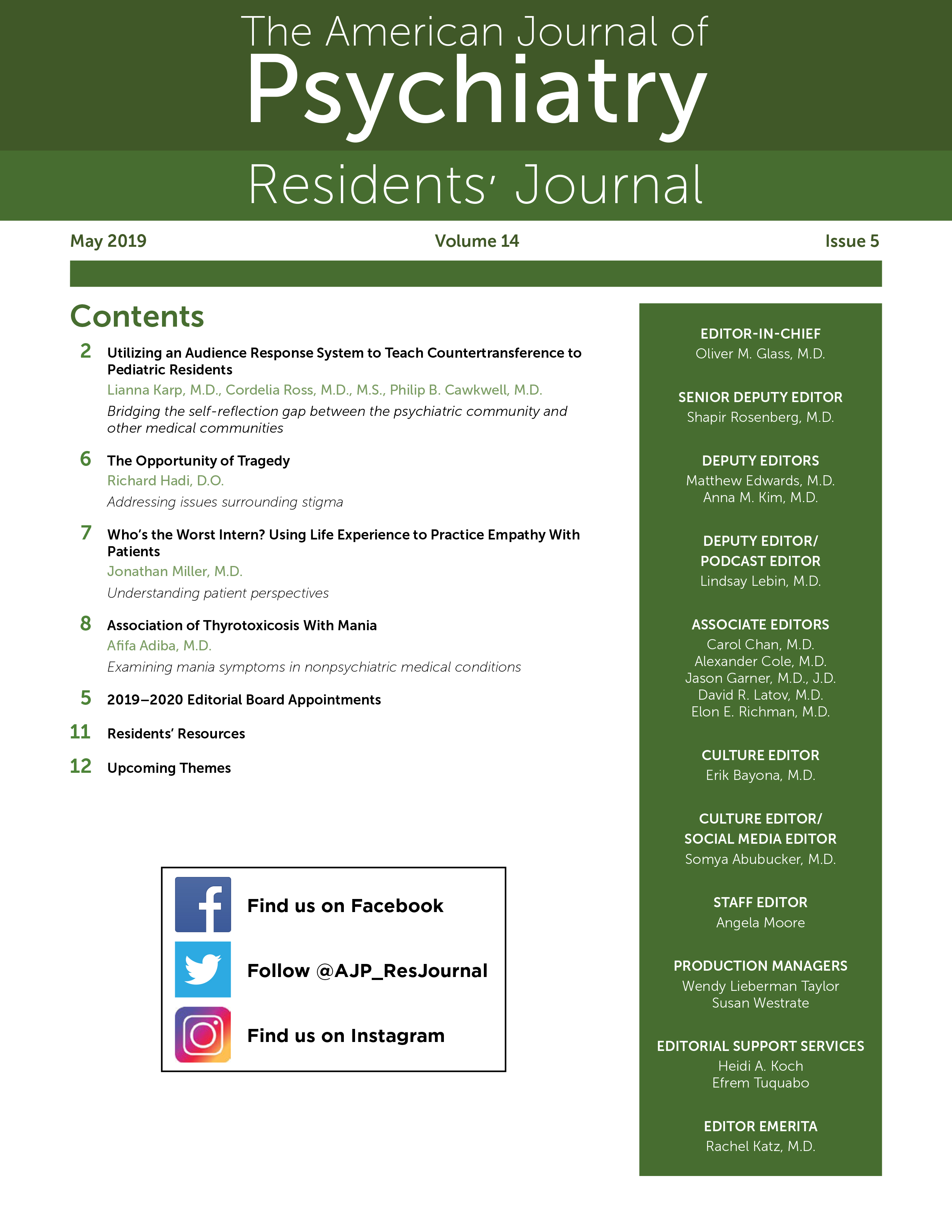"He was one of my heroes too."
It is a strange feeling when you and a patient share a moment of unexpected silence over the death of a person neither has met. That person was Anthony Bourdain.
And yet, there we sat across from one another, not only as a doctor to a patient but as two fans of a fallen role model. Over the next couple of days, I thought about his suicide, and one question repeated itself in my mind, "Why did he not get help?"
Unfortunately, failing to seek treatment is a common narrative for people whose mental illness results in death. Suicide ranks as the 10th leading cause of mortality in the United States, according to the Centers for Disease Control and Prevention (
1). Even more disturbing is that among persons ages 10–34, suicide climbs to the second leading cause of death (
1). Negative attitudes and beliefs continue to motivate individuals to fear, reject, avoid, and discriminate against those with mental illness in our society (
2). These processes have kept conversations about wellness silent and away from the limelight. However, when celebrities die by suicide, the public is forced to take notice and to understand that even a larger-than-life individual is innately human and mortal. Although tragic, the recent deaths of Bourdain, Robin Williams, and Avicii afford us a unique and compelling opportunity—a chance to discuss mental health openly and without stigma.
Although concrete data on successful interventions after a celebrity suicide are limited, studies have shown an increase in interest in mental health and treatment by the general public (
3). As physicians, we should take this opportunity to normalize conversations about mental health and reemphasize the importance of psychiatric care with our patients. In fact, research on antistigma interventions emphasizes that doctors, in particular, are exceptionally suited and uniquely positioned to provide necessary psychoeducation that destigmatizes mental illness (
4). Part of that education process can begin when we help our patients understand the severity of the current epidemic of mental illness. Many of my patients are shocked to learn that not only are nearly 20% of persons in the United States—44.7 million people—affected by mental illness but also that, in terms of mortality, suicide outranks a condition as widely recognized as sepsis by a significant margin (
5). By increasing awareness of the prevalence and acuity of mental disorders among our patients, we can begin to reverse the stigma of mental disorders and bridge the gap between patients and adequate care.
My patient later acknowledged that it was Bourdain's death that gave him the wake-up call he needed to address his depression and seek treatment. Although his outcome was positive, the truth remains that stigma continues to hinder people from seeking help. Physicians have an important role in creating change. Without a doubt, it will be difficult and will take time, but change starts simply by having the courage to be an advocate and acting on our desire to heal.
